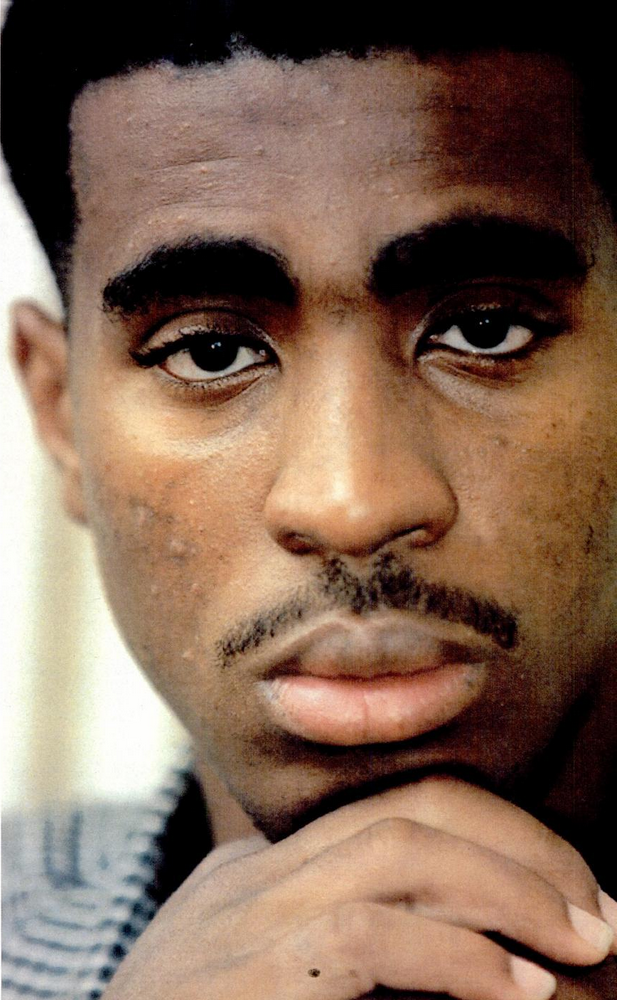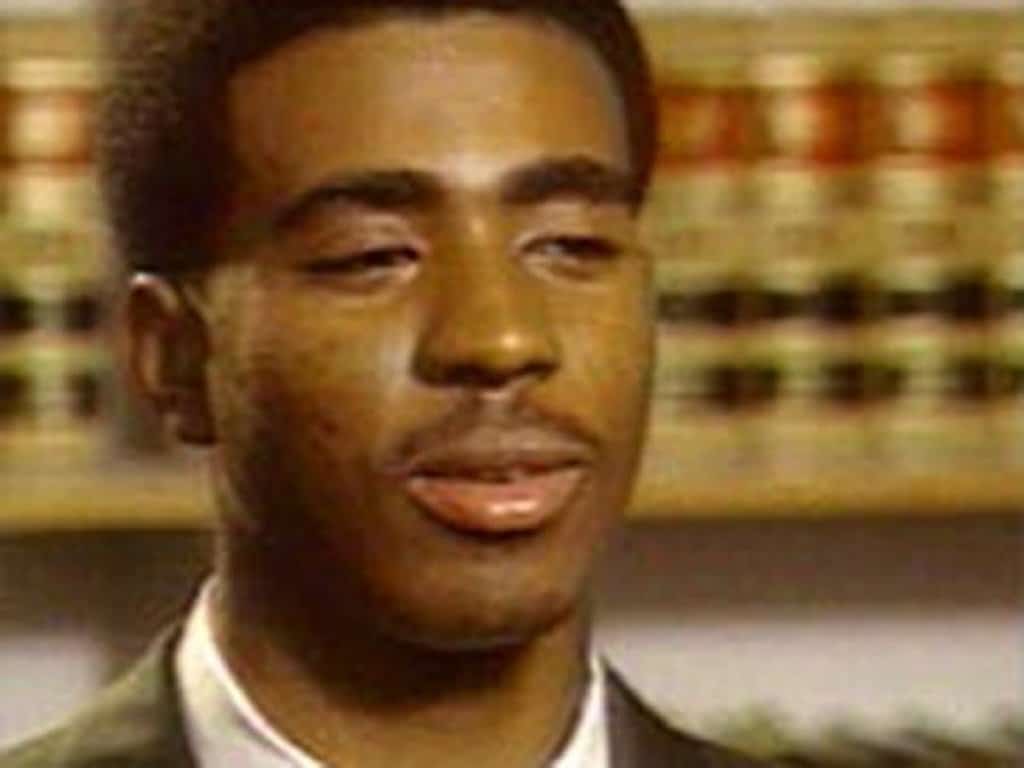Orlando Anderson: Tupac Murder Suspect? The Full Story
Was Orlando Anderson truly the trigger man in the Tupac Shakur murder? The shadow of suspicion has long pointed towards Orlando Anderson, a name synonymous with the unsolved mystery of Tupac Shakurs death.
The narrative surrounding Orlando Anderson, also known as "Baby Lane," is a complex web of gang affiliations, violent encounters, and lingering questions. He emerged as a prime suspect in the investigation into the drive-by shooting that claimed the life of the iconic rapper on September 7, 1996, at the intersection of Flamingo Road and Koval Lane in Las Vegas. The events of that night, and the circumstances leading up to it, have been dissected and debated for over two decades, with Anderson's name consistently surfacing as a central figure.
| Category | Information |
|---|---|
| Full Name | Orlando Tive Anderson |
| Alias | "Baby Lane" |
| Date of Birth | August 13, 1974 |
| Place of Birth | Compton, California |
| Date of Death | May 29, 1998 |
| Cause of Death | Gang-related shooting |
| Gang Affiliation | South Side Compton Crips |
| Involvement | Suspect in the murder of Tupac Shakur |
| Relationship to Duane Davis | Nephew |
| Further Info | Orlando Anderson Wikipedia |
In the hours preceding the fateful shooting, tensions escalated dramatically. Shakur and his entourage were involved in a physical altercation with Anderson at the MGM Grand Hotel following the Mike Tyson vs. Bruce Seldon boxing match. This brawl, fueled by simmering rivalries between the Bloods and the Crips gangs to which Shakur's and Anderson's respective associates belonged is widely considered a catalyst for the subsequent violence. Documents indicate that security personnel from Death Row Records, Shakur's label, were also involved in the melee.
- Vegamovies Keine Ergebnisse Tipps Alternativen Finden
- Filmyfly Filme Was Sie Wirklich Wissen Mssen 2024
Las Vegas police quickly identified Anderson as a person of interest in the Shakur investigation. However, the extent of their investigation into Anderson has been a subject of criticism and controversy. He was reportedly interviewed only once, and that interview was brief, leaving many to question whether law enforcement adequately pursued all leads. The lack of a thorough investigation has fueled speculation and conspiracy theories surrounding the case for years.
Adding another layer of complexity to the narrative, Anderson himself maintained his innocence. He claimed to be a fan of Tupac Shakur and criticized the police investigation, suggesting that they were overlooking other potential suspects. This stance, however, did little to quell the persistent rumors and accusations that continued to dog him until his own untimely death.
On October 2, 1996, just weeks after Shakur's death, Anderson faced legal troubles of his own. He was arrested in connection with the April 12, 1996, murder of Edward Webb, who was ambushed and fatally shot at a party by "several black males." This arrest further solidified the perception of Anderson as a violent individual involved in gang-related activities.
- Kannada Filme Tophits Wo Man Sie Findet 20212024
- Filme Online Schauen Die Besten Streamingdienste Im Vergleich
The mystery surrounding Tupac Shakur's murder deepened with the death of Orlando Anderson himself, nearly two years after the rapper's passing. Anderson was killed in an unrelated gang shooting, bringing a definitive end to his potential cooperation with law enforcement and further complicating efforts to definitively solve the case. The circumstances of his death only fueled the existing conspiracy theories, leaving a sense of unresolved justice.
Reports surfaced, notably through TMZ, suggesting that the .40 caliber Glock used in Anderson's own shooting was the same weapon used to kill Shakur. While this information added another intriguing element to the case, it did not lead to a conclusive resolution.
Years later, a retired police officer claimed that Duane "Keefe D" Davis, Anderson's uncle and a known figure in the South Side Compton Crips, confessed that Orlando Anderson admitted to killing Shakur in the days following the rapper's death. This alleged confession, if true, provides a significant piece of evidence implicating Anderson directly in the crime. However, its veracity remains subject to scrutiny, particularly given the source and the passage of time.
Adding to the narrative, Philips alleged that Orlando Tive "Baby Lane" Anderson was the most likely suspect in the killing. As a member of the South Side Compton Crips, Anderson had the motive and opportunity, according to Philips, to carry out the murder.
Amidst the backdrop of grief following Shakur's death, a series of events unfolded, leaving a lasting impact on the lives of those connected to the case. The unsolved nature of the crime has allowed various narratives and interpretations to persist, shaping public perception and perpetuating the legend of Tupac Shakur.
The question "Por que Orlando matou Tupac?" ("Why did Orlando kill Tupac?") continues to be asked in various forums and discussions. Some theories suggest that Anderson and other Crips members were seeking revenge for the earlier altercation at the MGM Grand, while others point to deeper gang rivalries and personal animosities.
Accounts claim that Anderson had engaged in a fight with the rapper at the MGM prior to the Las Vegas shooting, alongside his associates. This physical confrontation served as a highly visible and public display of animosity, fueling speculation that it directly led to the subsequent act of violence.
Adding weight to the revenge motive, some sources maintain that Anderson and other members of the Crips were specifically seeking retribution, which may have ultimately led to the rapper's assassination. This theory suggests a calculated and premeditated act of violence, driven by a desire to settle scores and assert dominance within the gang landscape.
Further complicating the already intricate web of events, the Las Vegas police announced an arrest in the killing of Tupac Shakur, displaying an image of Shakur and Marion "Suge" Knight from the night of the shooting in 1996. This action reignited public interest in the case, demonstrating that law enforcement was still actively pursuing leads and seeking to bring closure to the long-unsolved mystery.
On the day of the incident, it's claimed that Anderson drove past a carwash where at least three members of a rival gang had gathered. This encounter may have served as a triggering event, prompting Anderson to take action and engage in further conflict.
Reportedly, Anderson pulled into the carwash and became embroiled in an argument regarding unpaid debts or other grievances. This dispute may have escalated quickly, creating a volatile situation that ultimately led to the tragic events that followed.
According to Detective Brennan, Andersons murder was a direct consequence of his gang affiliations and the ongoing conflicts within the criminal underworld. This perspective suggests that Anderson's involvement in gang life made him a target and ultimately contributed to his demise.
In September 1996, Shakur, along with Suge Knight, the head of Death Row Records, and several friends, attended the Mike Tyson vs. Bruce Seldon boxing match at the MGM Grand Hotel in Las Vegas. This event set the stage for the altercation with Anderson and the subsequent chain of events that culminated in Shakur's shooting.
More than 20 years after Tupac's murder, the uncle of the alleged assassin confessed his involvement in the tragic act that occurred on the evening of September 7, 1996, at 11:14 p.m. This confession, if corroborated, could provide a crucial breakthrough in the case.
On September 7, 1996, Tupac was the target of a shooting while in his car; he died a few days later. The circumstances surrounding this shooting have been the subject of intense scrutiny and speculation for decades.
Orlando Anderson was considered a suspect in the case of the murdered rapper Tupac Shakur early on. His presence at the MGM Grand fight and his gang affiliations made him a natural focus for investigators.
Anderson is long dead, but his uncle Duane "Keffe D" Davis admitted in 2018 that he was also present when the shots were fired. This admission, though not a direct confession to pulling the trigger, places Davis at the scene and further implicates Anderson in the crime.
Orlando Anderson remains a central, albeit controversial, figure in the ongoing saga of Tupac Shakur's unsolved murder, and the circumstances surrounding his life and death continue to fuel debate and speculation.

Orlando Anderson “the man who shot Tupac” The Hip Hop Museum

Orlando Anderson Shot Tupac Shakur Murder Explained
![WESTSIDE LOVE [專題] The Last Words of Tupac Shakur](http://1.bp.blogspot.com/-NSzIG-EWoB4/U9X_rGlQaQI/AAAAAAAAQPE/rIgzBZLw7FY/s1600/+Orlando+Anderson.jpg)
WESTSIDE LOVE [專題] The Last Words of Tupac Shakur